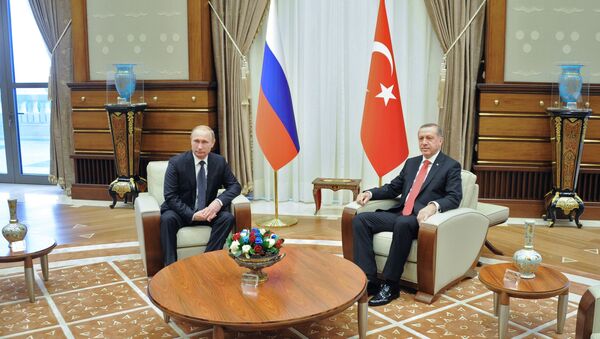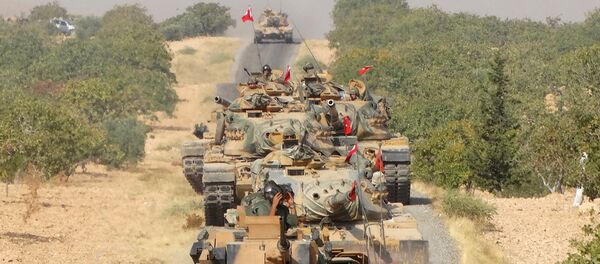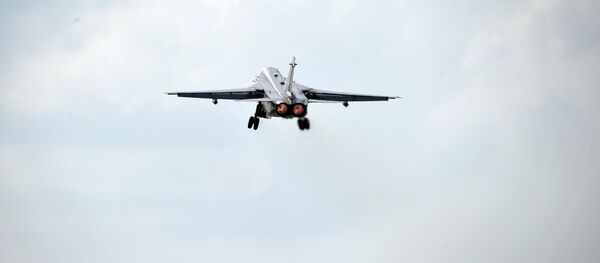The interview came after the Russian President's spokesman Dmitry Peskov told reporters that he does not exclude that President Vladimir Putin may pay a visit to Turkey in October.
Touching upon the planned visit, Mugisuddin said in turn that the situation in Syria will be high on the agenda.
He recalled that during Putin's previous visits to Turkey, priority was given to bilateral trade and economic relations, while this time "the main topic of bilateral talks will be the situation in Syria and the future of this Arab country."
Also on the table will be restoring former cooperation in the trade, economic and energy sectors as well as the deteriorating situation in Europe, the shift of the center of gravity of world politics towards Eurasia and the upcoming elections in the United States, according to Mugisuddin.
Commenting on the ongoing full-fledged restoration of Russian-Turkish cooperation, he remained upbeat about further development in bilateral ties.
"First of all, I want to say that many in Turkey, including me, are very happy with this rapidly growing development of our relations, something that is a quite natural situation," according to him.
"In contrast, the period of the crisis in our relations should be considered an abnormal situation which was created artificially, by certain external forces. The fact that we are neighbors with deep historical ties implies the need to establish close contacts in all key areas. In Turkey we are very pleased that the artificially created crisis period is already behind us," Mugisuddin said.
Russian-Turkish relations deteriorated after the downing of a Russian Su-24 bomber by a Turkish fighter jet in Syria on November 24, 2015.
Moscow imposed a number of restrictive measures on Turkey in response to what Russian President Vladimir Putin condemned as a "stab in the back."
The thaw in bilateral ties came after Turkish President Recep Tayyip Erdogan apologized for the November incident, in a letter to Russian President Vladimir Putin in June 2016.
By doing so, Ankara fulfilled Moscow’s condition for restoring the long-term partnership between the two countries. The letter also said a legal case was being launched against a Turkish citizen suspected of involvement in the death of the downed plane's pilot, which was another precondition.






